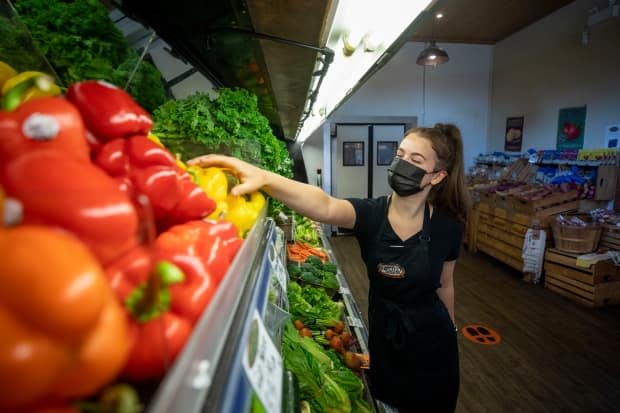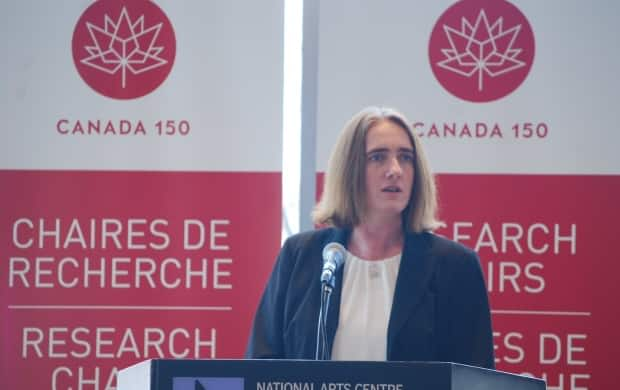Essential workers before seniors, says epidemiologist suggesting B.C. rethink its vaccine rollout plan

With the B.C. government's vaccine rollout plan now underway, an expert in virus modelling says there may be a better way to protect more people faster.
The B.C. government plans to vaccinate residents against COVID-19 starting with the most elderly and working its way down to younger age groups.
But Caroline Colijn, a COVID-19 modeller and mathematics professor at Simon Fraser University, says the province should be prioritizing essential workers — people who have to have contact with others while on the job — over seniors when it comes to getting a shot.
"By protecting those people in the communities around [seniors] who have to have contact, you actually reduce the exposure in the elderly themselves," said Colijn, speaking Tuesday morning on CBC's The Early Edition.
"You can end up protecting more people per vaccine dose by vaccinating people at risk of exposure and transmission, because it stops the chain before they take off," she added.
Kim Novak, president of United Food and Commercial Workers Local 1518, which represents grocery store and pharmacy workers, said her union has been advocating for front-line workers to have priority for the vaccine, once the province finishes vaccinating all seniors.
"I think it's really important that we still follow through that the most vulnerable group needs to be vaccinated first," she said.
"What we've been advocating for, when we look at Phase 3 and more vaccinations becoming available, is ensuring that the people we all interact with when we go to grocery stores and pharmacies be protected for themselves and for their families, but also that they be protected for the public that they're interacting with every day."
Novak said grocery store and pharmacy workers, along with people who work in food processing plants, have been on the front line of the pandemic for nearly a year, and anxieties are running high now that the more infectious variants have been discovered in B.C.
"We have seen an uptick in cases and especially with a more aggressive variant — the more that we are doing to protect these workers and therefore the rest of the public is really important," she said.
Why now?
Colijn said this approach is plausible for B.C. right now because case numbers are holding somewhat steady.
"If we had really high transmission, so that people were going to be kind of exposed anyway, then it becomes better to vaccinate the oldest first," said Colijn.
B.C. recorded 1,428 new cases of COVID-19 and eight more deaths over the past three days. Colijn defined high transmission as tens of thousands of cases a day.

However, Colijn is worried about newly circulating variants of the virus in Canada, saying research on the B117 variant from the United Kingdom shows the variant is "very transmissible" and that if it takes off in B.C. it could have devastating consequences.
It was a concerning weekend on the COVID-19 front as health officials confirmed seven exposures of the B117 coronavirus variant at Lower Mainland schools.
But in a news conference Monday, Deputy Provincial Health Officer Reka Gustafson's message was to stay the course.
"There is no indication right now that in British Columbia we need to change our approach," said Gustafson, responding to a question about testing protocols.
Colijn suggests the province start vaccinating essential workers now to get ahead of what could be a spike in cases because of these variants.
"If we don't vaccinate transmitters, or people at risk of exposure and transmitting to others, then we're not going to be as robust and we're going to have to use other measures like lockdowns to control higher transmission variants."
LISTEN | Caroline Colijn explains why she wants the B.C. government to change its vaccine rollout plan:
CBC British Columbia is hosting a town hall on March 10 to answer your COVID-19 vaccine questions.
You can find the details at cbc.ca/ourshot, as well as opportunities to participate in two community conversations on March 3, focused on outreach to Indigenous and multicultural communities.
Have a question about the vaccine, or the rollout plan in B.C.? Email us: bcasks@cbc.ca

